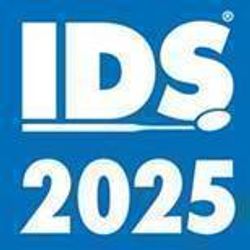- About Us
- Advertise
- Editorial
- Contact Us
- Terms and Conditions
- Privacy Policy
- Do Not Sell My Personal Information
© 2025 MJH Life Sciences™ and Dental Products Report. All rights reserved.
The workflow possibilities with open-architecture scanners
Open-architecture scanners make it easy to connect your lab to an almost limitless range of workflow options.
Open-architecture scanners make it easy to connect your lab to an almost limitless range of workflow options.
Someday, chairside digital impressioning may be standard operating procedure and cases will go directly from the operatory to a lab’s computer, but until then, lab scanners will be the main gateway to digital workflows.
In this segment, we focus on shifts to open-architecture scanners designed to give a lab options in both digital design and physical production.
Open scanners such as systems produced by 3Shape and Dental Wings allow labs to send digital restoration design production on any number of mills, 3D printers and other CAM systems. This means open scanners can bring digital efficiencies to just about any workflow for any type of restoration a lab produces, and users have their choice of production partners, materials and just about every other detail.
MAKING THE WORKFLOW
Adding digital processes to a lab is really about leveraging technology to increase efficiency. Working from scanned data for digital case design can allow the lab to automate some of the more labor intensive steps in the fabrication process, and an open system lets the lab choose which parts of the process are to be done digitally and which will still be hand crafted.
3Shape International Product Manager Sven Nonboe said 3Shape’s system is designed around that type of flexibility with a full-range of indications available through the company’s DentalSystem™ software, which can be used for everything from basic coping design, to full-contour crowns, implant bars and removable partials. The “user-friendly yet flexible” system guides the user through the scan and design steps allowing people to get to work quickly and at a quick pace.
Those efficiencies are of great benefit to a busy lab, but the scanners also should let lab technicians make use of the skills, knowledge and techniques they already possess within the digital environment.
One way 3Shape is trying to accomplish this is through the high-quality scans captured by the 5 megapixel cameras of the company’s D800 scanner, which is capable of detecting hand-drawn markings on models being scanned, whether they’re removable design sketches or margin lines.
The software then picks up on these lines and automatically incorporates them into the digital design. Nonboe said synergies between the scan and the design technologies are designed to be efficient so labs can achieve optimal outcomes via digital production steps. And these synergies go both ways between the scanner and the software.
OPEN BUT NOT ISOLATED
Getting into scanning via an open-architecture scanner does leave the lab with many decisions to make. What products will be produced based on digital designs? Will all or just part of the case be done digitally? Will production be done via a mill or printer in-house? If outsourcing the production, who will the cases be sent to?
With open systems, labs face these choices, but they’re also not locked into that decision once the choice has been made. If an outsource production partner isn’t delivering the expected quality, the lab can look for another place to send cases, or even another material or fabrication technique to test out.
Open scanner systems allow the flexibility to change and expand how labs work. If digital business grows, a second workstation can be added to the system. If a lab starts off sending designs out for production they are not locked into using the same system or materials when deciding to bring some of that business back in-house.
FITTING THE MODEL
While milled restorations seem to be the first thing people think of doing with digital workflows, labs can go digital for some processes without becoming strictly CAD/CAM operations.
That freedom is the biggest advantage. Labs going this route set themselves up with options. The lab can make a digital transition at its own pace and if that plan isn’t working, it can be changed.



